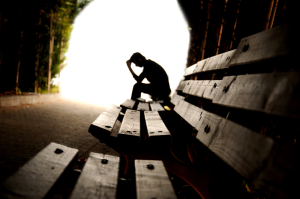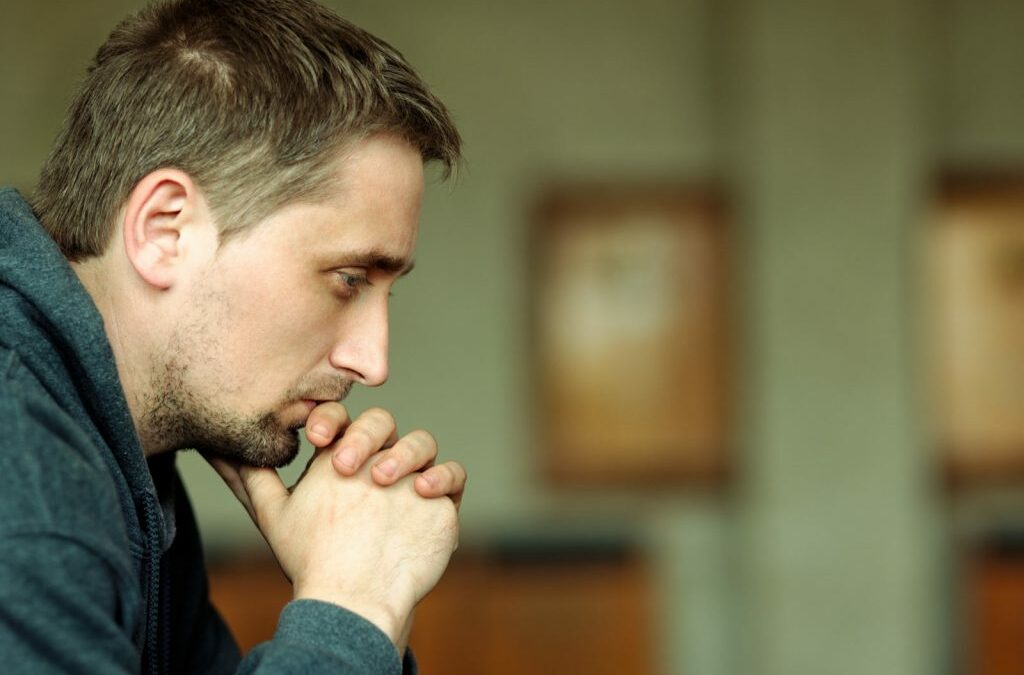 “Man up!” It’s the catch-all, cure-all for the testosterone set. Shrug it off and don’t show weakness. Step up…like a real man. Considering how widespread masculine conditioning is, it’s no surprise that recognizing the signs and symptoms of depression in men can sometimes feel like navigating a maze.
“Man up!” It’s the catch-all, cure-all for the testosterone set. Shrug it off and don’t show weakness. Step up…like a real man. Considering how widespread masculine conditioning is, it’s no surprise that recognizing the signs and symptoms of depression in men can sometimes feel like navigating a maze.
More than 6 million men in the U.S. suffer from clinical depression. Society says that men are to exude strength and power. They are not to talk about their emotions. As a result, countless more men are undiagnosed and untreated. Men are more likely to discuss the physical symptoms of depression, like fatigue and muscle aches than reveal what’s on their mind. As a result, men with major depressive disorder are four times more likely to commit suicide than women. Needless to say, this is why therapy for men can be a literal lifesaver.
How to Recognize Major Depression
Depression impacts one in six adults at some point in their life, but even with such a high incidence, recognizing depression remains a challenge, especially for men. How often do we shrug off a man’s expressions of sadness or grief as “nothing to worry about”? The following are just some of the symptoms of depression in men. The situation must be addressed if any or all of these signs persist for more than two weeks:
- Abrupt change in appetite (including weight loss or gain)
- Sudden and drastic shifts in sleeping patterns
- Sudden and drastic shifts in energy levels
- A sense of worthlessness or guilt
- Disinterest in favorite activities
- Sexual dysfunction
- Indulging one’s “dark side”
- Discussion of suicide
Depression in Men
Perusing that list of possible symptoms makes it clear that there are unique factors involved with depression in men. However, there are few role models for men who feel empty or hopeless or anxious. Men who suffer from depression are stuck. Who can they turn to? How can they turn to someone and not feel less of a man?
Some Expectations for Men
The male cultural structure conditions men to believe they will lose face by discussing such concerns. Men are providers and they can’t slack off or mope. Doing so means they will not meet the strict gender expectations put on them.
Men must:
- Be in control
- Express manly emotions like anger and aggression
- Suppress any sign of weakness
These societal realities highlight the importance of therapy for men. The stigma of depression may lead men away from opening up to family and friends. That same stigma may lead them toward self-treatments like substance abuse and other risky behaviors.
4 Steps to Help Deal with Depression in Men
- Understand how depression works. Developing major depressive disorder is not some kind of moral failure. Quite often, it’s a blend of genes and brain chemistry. Studies have found higher rates of depression in men with a family history of the disorder and brain scans of those with depression show differences from those without the illness. You are not to blame for your biology.
- Accept your humanity. No matter how tough or macho you are, you will face difficult and challenging experiences like divorce, job loss, the death of a loved one, and more. Research shows that such stressful situations may serve as a trigger for depression—especially for those not accustomed to expressing emotions.
- Find role models. The masculine paradigm, built upon modeling behavior, may someday help rather than hinder men with depression. Imagine how helpful it would be if more males dealing with depression were open about their condition and the steps they’re taking to address it.
- Ask for help. Therapy is a path to acceptance and relief for men who suffer from depression. You are not alone.
To read more about depression counseling and treatment, click here. If you have additional questions or are interested in setting up a complimentary 30-minute consultation or appointment, do call my office at (941) 306 1235 or send me a email at [email protected].

